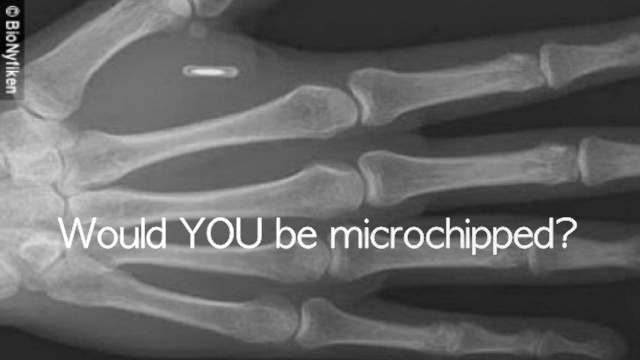During the recent IFA global press conference 2015 held in Berlin where a well-known security firm Kaspersky Lab micro chipped a volunteer’s hand live in front of the audience and demonstrated that how an RFID chip can be inserted into humans, filling a gap between humans and computers.
But before implementation, the firm did not emphasize over the privacy and security concerns that could be faced by the human beings once they are biohacked.
However, these biochips are highly innovative and could completely transform the way you interact with your mobile devices and other technology enabled computer systems. Out of many features, this chip would allow you to connect with the bank account, your vehicle, your residential door locking system, and virtually any other compatible device. And could even be used to store highly personal data like passwords.
Kaspersky Labs has teamed up with BioNyfiken, which is a Sweden-based chartered non-profit bio-hacking organisation whose objective is to be a driving force in the development of the dynamic and creative tech-activist, for a press conference to spread awareness about the early usage and possibilities of RFID chips on human beings.
It is well-known that implementation of RFID chips on living creatures is not something completely new because we have seen individuals implementing RFID chips into their pet animals for past several years now. But this happened recently that these chips, having a fairly accurate size of a grain of rice, are now being adopted/injected into the humans.

“The next logical step is not to stop at wearables such as smartwatches but go under the skin to enable more functionalities,” said Marcus Preuss, Director of Kaspersky Labs’ global research team in Europe. He further added, “At the moment, it’s quite limited.”
These state-of-the-art implants, once implemented into a human, unleashes a new set of possibilities like making a bank payments, unlocking and accessing devices like mobile phone and laptop, with just a wave of the hand.
These chips are easy to find and can be bought from the online stores for around $150. Buyers can insert this chip into their hand either by themselves using a sizeable needle or by asking a professional piercer.
Early adopters and interested individuals are curious about this new technology and getting themselves enrolled into the early implementation list. But little did they know about the privacy and security issues this might bring which could be exploited or hacked in a very similar way as computer systems are being hacked.
Here’s the demo:
Google Patents for contact lens that can scan your Iris
One of the most apparent threat for most of the bio-hacked people is that they could be wirelessly tracked by agencies. But we are already surrounded by many traceable devices that most would simply ignore this threat.
However, hacking into a biochip could be possible in the near future once these chips are adopted and closely researched or inspected by the group of hackers. But since it is an RFID chip so any intruder must have to be very close to your hand to hack into the data stored into the chip.
“Personally, I’d rather not be chipped,” said Eugene Kaspersky, Chairman and Chief Executive of Kaspersky Labs. He further added,
“I do however understand that technological progress cannot be hindered and there will be innovators who are ready to accept the risk and test the limits of technology by experimenting on their own bodies.”
Currently, these chips are highly insecure because they are using basic and simple four-digit pin code. So to further secure the chip from the hacking attempts, a team of security researchers over at Kaspersky Labs are actively working on finding ways it could be exploited in an attempt to make it secure.
Suggest ideas, report typos and corrections to admin@hackread.com
DailyMail










